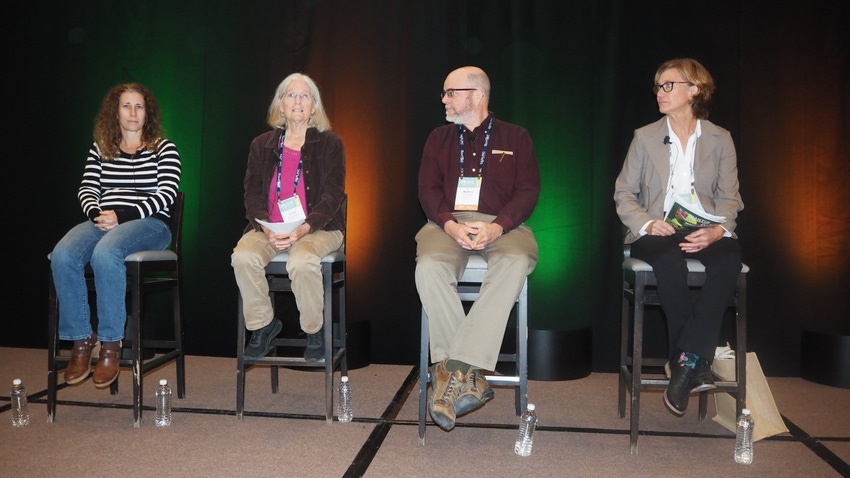
Agronomists and crop advisers in organic agriculture say a new California “roadmap” for enhanced pest management could create a competitive advantage for organic growers, who are already doing many of the practices.
State agencies in early 2023 unveiled a Sustainable Pest Management Roadmap, which builds on current integrated pest management with broader consideration of human health and social equity, environmental protections and economic vitality, according to a state summary.
IPM focuses on prevention through biological controls, habitat manipulation and other approaches, but allows for precise pesticide treatments when monitoring indicates they are needed, notes the state Department of Pesticide Regulation.
California officials want to phase out many pyrethroids, herbicides, fumigants and other chemical treatments by 2050, although environmental groups will likely pressure regulators to move faster, said Gina Bella Colfer, a sustainable solutions crop adviser for Wilbur-Ellis.
“PCA’s aren’t going to be able to rely on some of the broader chemistries that do a pretty good job,” Colfer said during a panel discussion at the Organic Grower Summit in Monterey, Calif. “I really think the organic industry has a leg up because we’ve been doing it. We’re not using high-risk pesticides but we’re using biologicals … We’re trying to use a more holistic approach.”
The roadmap was developed by a 25-member work group that included officials from the DPR, the California Environmental Protection Agency and the California Department of Food and Agriculture. The agencies took public comments and conducted several webinars on the proposal in early 2023.
Evolution of IPM
State officials describe sustainable pest management, or SPM, as an evolution of the IPM concept. The University of California Statewide Integrated Pest Management Program defines IPM as an ecosystem-based strategy that focuses on long-term prevention of pests or damage through a combination of techniques such as biological control, habitat manipulation, modification of cultural practices, and use of resistant varieties. Pesticides are used to remove only the target organism.
SPM goes beyond this checklist of practices to address:
Impacts on communities, and equity
Linkages to broader environmental issues such as water conservation, biodiversity conservation, soil health, and climate impact
A broader consideration of economic benefits and impacts
The approach was prompted by increasing concerns about pesticides’ impact on human health and organisms’ increasing resistance to some treatments, officials said.
“In California, organic growers are pretty much in compliance” already, said Matthew Grieshop, director of the Grimm Family Center for Organic Production and Research at California Polytechnic State University, San Luis Obispo.
“We have an amazing biopesticide program for codling moth,” Grieshop said at the organic summit. “Twenty to 25% of apples in Washington state are organic.”
‘Priority’ pesticides
Among its proposed solutions, the roadmap calls for the elimination of what officials call “priority” pesticides – those that have been deemed to be of greatest concern based on levels of health risk or other adverse impacts. These pesticides will be determined by DPR.
The state will instead focus on pest prevention by eliminating “pest-conducive conditions” in agriculture as well as urban settings, according to the planning document. Agencies will also work to improve DPR’s registration review process and expedite alternatives to high-risk pesticides.
Panelists at the organic summit said one challenge for growers will be to address the concerns of buyers about impacts from the new practices, including potential effects on food safety.
“Educate buyers about how you’re doing things differently,” Taylor Farms agronomy manager Kim Horton told growers. “Let them see what you’re trying to get established in the field. With things like companion plants and beneficial insects, handle them like a crop rather than just having a wild area off to the side.”
Many large buyers have equity and sustainability goals that SPM can help them address, Grieshop said.
“This is kind of a wedge if you think about it,” he said. “If you take away these tools, the system is going to have to change. The conventional growers are going to be facing the same issues that we’ve been facing for a long time. I think there are opportunities in that.”
About the Author(s)
You May Also Like






